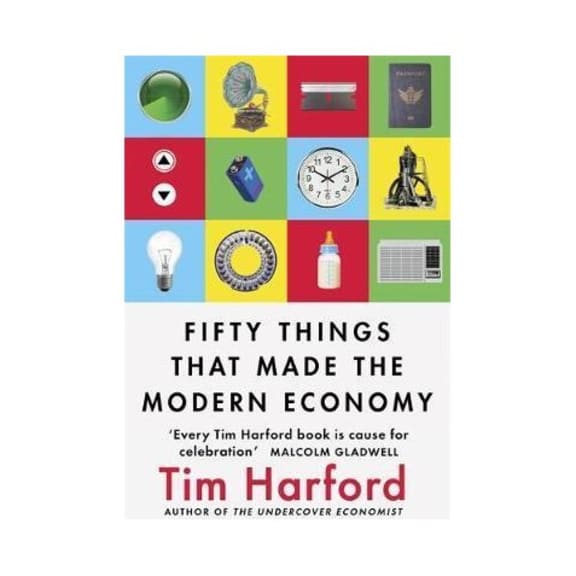The simplest inventions changed the world. Paper. Barbed wire. The lightbulb.
In his new book Fifty Things That Made The Modern Economy, author and economist Tim Harford explores the history of 50 inventions that changed the economics of the world, delving into the modern era and the distant past to explore the people, ideas, and tools that shaped the world.

Photo: 123rf
Harford tells Jesse Mulligan that the world of economics can seem so abstract, but in reality it governs the everyday.
In his book, he explores how 50 inventions, from the lightbulb, to the gramophone, to the shipping container and TV dinners, changed the world economy.
“It can seem like it’s all jargon, it’s all numbers but of course economics governs the way we live everyday, how we shop, who’s rich, who’s poor, how we spend our lives.
“The idea with each of these is there’s a lesson about how the economy works.”
Harford says paper, for example, was important but the Gutenberg press received all the attention.
Another example is the shipping container, which gained international usage during the Vietnam war.
“New Zealand would be a very very different place if it wasn’t for the shipping container lowering transport costs but, you know, it’s easy to overlook.

Tim Harford Photo: supplied
“A lot of inventions really have their impact because they fit into a system and they change all the elements in that system. So the shipping container’s a good example of that … the ships have got to be reconfigured, the cranes have got to be reconfigured.
“Another example is the elevator. It’s great, but it’s useless without the elevator brake. It’s also not that useful without reinforced concrete, structural steel for skyscrapers and even mass transit … because that helps build really dense cities with skyscrapers and that’s what makes elevators useful.”
Barbed wire often makes people think of concentration camps, trenches and prisons, he says, but it was invented to solve a particular problem in the settler era of the mid-19th century in the western United States.
Settlers found there were not enough trees and, therefore, not enough wood to fence off territory and livestock.
The answer was barbed wire.
Its advertising slogan was: ‘Stronger than whisky, lighter than air, cheaper than dust’.
“It’s a really simple cheap invention but it suddenly enabled people to assert their property rights and these were property rights that had been taken away from the Native Americans and in many ways taken away from the cowboys as well.
“So it really totally altered the balance of power.”
Mr Harford says the man who invented the idea of disposable was King Camp Gillette, best remembered for a safety razor patent. It was his pricing model that changed the world, though.
He developed a pricing model after the patent expired, a model in which it was cheap to buy the razor, but expensive to buy blades.
This is known as “two-part pricing” and it’s everywhere - printers and ink, coffee machines and pods, hotel mini-bars.
“It’s partly I think taking advantage of consumer confusion. We know that the later products will be expensive but it’s hard for us to figure out exactly how expensive. And there’s just not that much mileage in someone coming in with a really honest product.”
The gramophone changed the entertainment industry. Originally, there was no way to make mass copies. When the technology improved then copies could be made, transforming the economics
“Suddenly I don’t have to listen to the 100th best opera singer in the country. I can listen to the best opera singer in the world. I just buy the LP of the best opera singer.
“It produces this desire for novelty.”
This also happens in professional sport.
“You’ve moved from a model where you have to go to the stadium and watch your favourite team playing to a model where … you could watch Barcelona.
“It changes the economics. It’s the way this new technology changed who got what, who was rich and who was poor.
“We see that again and again.”

Photo: supplied
TV dinners changed women’s lives, he says, but he started out to research the econonmic effect of the home washing machine.
“When I did the research it turns out the washing machine just didn’t save much time … because we just washed our clothes much more often.
“But what did save the time was the industrialisation of food. So, microwaveable food, frozen pizzas, takeaway pre-packaged, pre-prepped food like a plucked chicken.
“The time that was saved went towards women having more free time … and have more economic independence.”
Often, though, inventions that change the world have unintended consequences.
“It’s really hard to think all these things through
“You can’t predict the future but you can at least discuss the past.”
“Some of them have had some very nasty side effects. They’ve all had unpredictable side effects but overall I think we have a lot to be grateful for.”
Tim Harford’s Fifty Things That Made The Modern Economy is available at bookstores in New Zealand and is based on a BBC World Service series.

